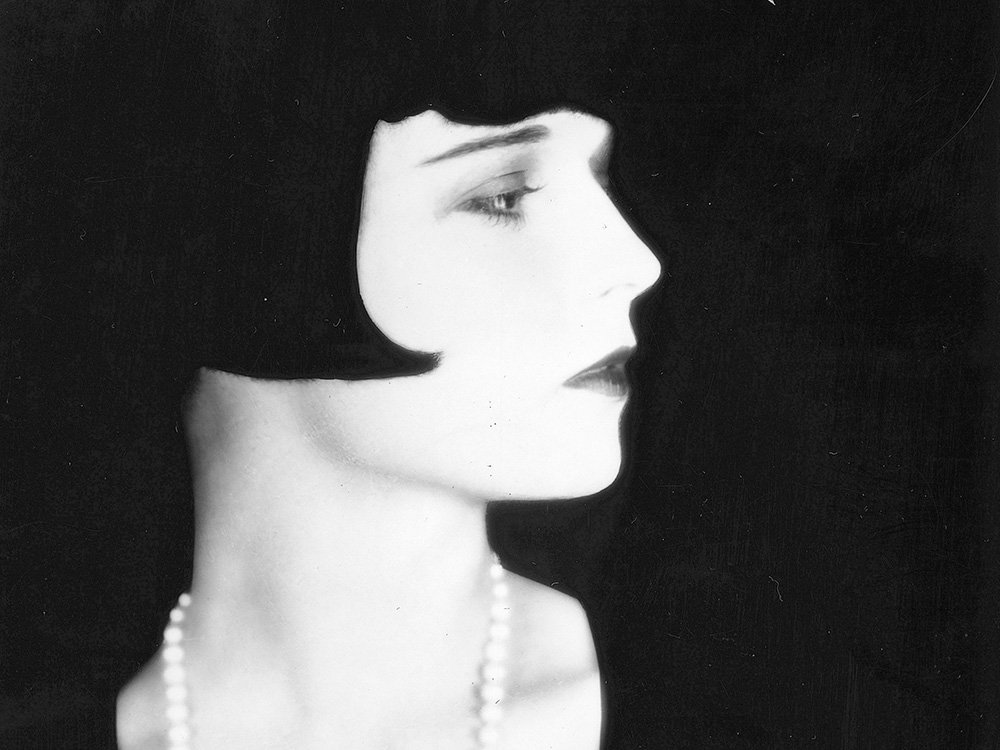Reviewed by Lee Hill
Film critics are known for superlatives with a shelf-life that makes the average fruit fly seem like one of the immortals. As newspapers and magazines became as quaint as brass rubbings, fewer critics make any money from what they do and being asked to contribute a blurb for a sub-adolescent comic book tie-in, paint-by-numbers rom com or earnest biopic now qualifies as a career high, I can appreciate the scepticism that some readers might have when I say Pandora’s Box should be an essential part of any film goer’s diet. This new digital reissue of GW Pabst’s 1929 masterpiece is not just one of the best films of 2018, but one of the greatest ever made.
Pandora’s Box is a genuinely sexy movie made at a time when sex was not only dirty, but dangerous. Filmed when the Weimer Republic was its Babylonian best, it stars Louise Brooks, a small-town girl from Kansas who became and remains an icon of uninhibited eroticism. Brooks’ flapper girl energy and continental worldliness, topped off with a helmet-like bob, was matched by the grace and athleticism of a trained dancer and the charisma of a born actor. She had talent to burn and her self-destructiveness made Marlon Brando’s later career follies resemble the caution of an insurance actuary.
Based on Frank Wiedekind’s Lulu plays, Erdgeist (Earth Spirit, 1895) and Die Büchse der Pandora (1904), Brooks as femme fatale and good time girl, Lulu, is the mistress of Dr. Ludwig Schön (Fritz Kortner). When Schön tells Lulu that he will marry the high-born Charlotte von Zarnikow (Daisy D’ora), these plans are barely in motion before they are derailed. Lulu, along with Schigolch (Carl Goetz), her aging pimp as mentor/father figure, use this opportunity to get Schon to underwrite an elaborate, near orgiastic musical revue. Schon’s son, Alwa (Francis Lederer), is also in love with Lulu and a frustrated stage designer.
These baroque characters soon from a triangle of doomed love and lust complicated further by the presence of Countess Augusta Geschwitz (Alice Roberts), who also longs for Lulu. Schon torn between his erotic obsession for Lulu and the pressure to marry a respectable woman has a cosmic (and fatal) meltdown on his wedding day. The culmination of which is that Lulu, Schigolch, Alwa and the Countless end up on the run from the law. Running out of money, they end up on a crazed steamer journey where Lulu barely escapes being sold into white slavery. And yet, with barely a dark tress of her legendary haircut out of place, Lulu and Alwa resurface in London. Alone together, their romance is a dance of death as it is only Lulu’s resigned entry into street prostitution that keeps them alive in their Dickensian digs.
Pabst, along with his co-writers, doesn’t just make this lurid plot make sense, but he invests it with intoxicating energy, dark beauty and poignancy. While Brooks dominates the scenes she is in, Pabst has surrounded her with actors who bring humanity to the grotesques they might have been in a lesser film. Not unlike Brooks in real-life, Lulu, with a smile almost always on the verge of ecstatic glee, is indifferent to the damage she has wrought on the men (and women) in her orbit or the disasters that seem to follow her.
Between partying hard in Berlin, Brooks made one more film with Pabst. Diary of A Lost Girl (1929), where she played a more demure and innocent character. After making an early sound film, Miss Europe, Brooks returned to the United States, where she turned down an offer to star in William Wellman’s Public Enemy and generally stopped cooperating with studio efforts to market her. Her byzantine love life, which often involved unavailable men, also stalled her comet-like career, By the mid-30s, she was back in her hometown of Cherryvale, Kansas, trying to run a dance school. For details of her life onwards, readers are highly encouraged to read Barry Paris’ excellent biography and search out Kenneth Tynan’s classic (and near fetishistic) New Yorker profile collected in his book Show People (1980).
This BFI reissue is a state of the art digital enhancement of the 1997 restoration by the Munich Film Museum. It features a pitch perfect score by Peer Raben, who worked on several of Rainer Werner Fassbinder’s films. For viewers who have had the misfortune to only encounter silent cinema through The Artist, seeing Pandora’s Box will be a hallucinatory experience. With its fluid editing, masterly composition and Brooks’ hypnotic persona, you will “hear” as well as see this film. Made at a time when other masters of silent cinema – Charlie Chapln, Sergei Eisentsein, Erich Von Stroheim, Buster Keaton, Fritz Lang, Carl Dreyer, FW Murnau, etc – had blown minds around the world, Pandora’s Box is a living monument to this legendary period of filmmaking.
Directed by GW Pabst
Screenplay by G. W. Pabst, Ladislaus Vajda, Joseph Fliesner
Starring Louise Brooks, Fritz Kortner, Francis Lederer
PANDORA’S BOX is released in selected UK theatres, including London’s BFI Southbank on 1 June.
